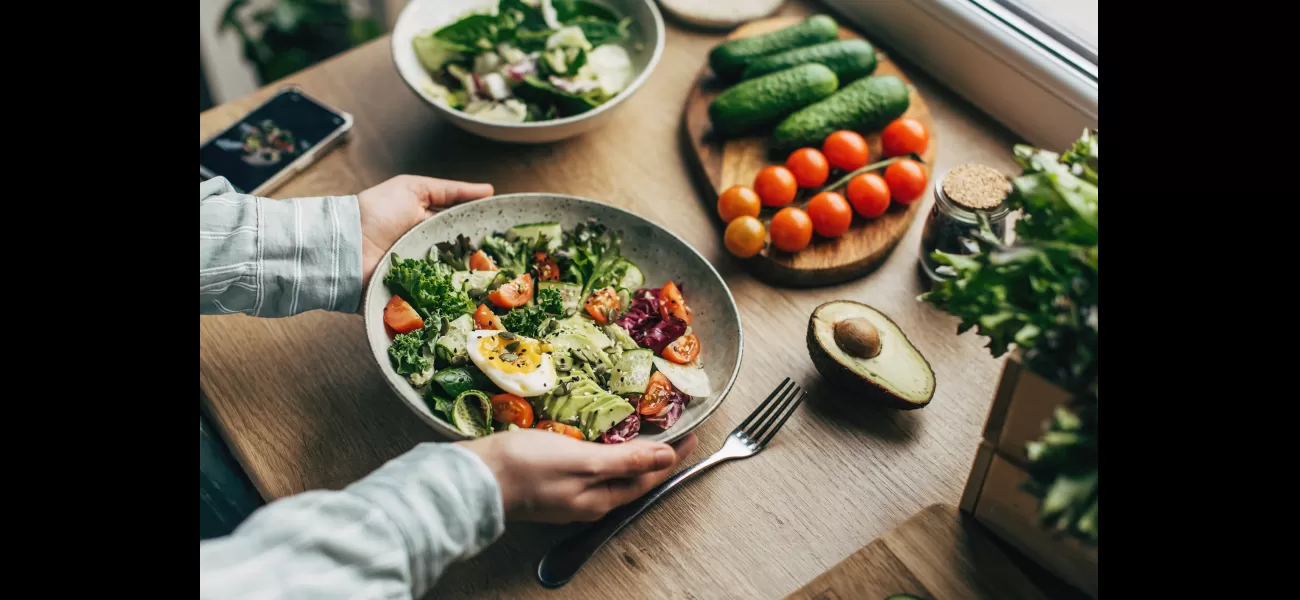Experts recommend proper washing techniques for fruit, vegetables, and salad.
Better to be cautious than regretful.
July 2nd 2024.

As the warm weather approaches, there's nothing quite like a refreshing salad or some juicy fruit to satisfy your cravings. However, before you indulge in your healthy meal, it's crucial that you take the necessary steps to ensure that your ingredients are properly cleaned.
Washing your salads, vegetables, and fruit before consumption not only removes any dirt and bugs, but also eliminates any harmful pesticides that may have been used during the growing process. It's also the best way to ensure your food is free of bacteria.
Although every effort is made to prevent contamination, it's still possible for bacteria to be present at any stage of the process. That's why it's essential to always wash your produce before eating. Unfortunately, there have been cases where E.coli has been traced back to lettuce used in pre-made sandwiches, resulting in a tragedy. It's a reminder that we must take the necessary precautions to keep ourselves and our loved ones safe.
To help you with proper food preparation, experts have shared their top tips with The Agency. It's important to start by minimizing the chances of contaminating your food by washing your hands with soap and cleaning all surfaces and your sink. Having separate cutting boards for fruits and vegetables, and raw meat can also prevent cross-contamination.
Before using any produce, it's important to check the use-by date and not consume anything past midnight on the day it expires. This applies to all products, including bagged lettuce and salad, according to Dr. Deborah Lee from Dr Fox Pharmacy.
Now, let's talk about the proper way to wash your fruits and vegetables. For leafy greens and salads, start by chopping off any brown or bruised pieces and removing the outer leaves. Then, separate the remaining leaves and hold them under cold running water for about 30 seconds. This method is more effective than soaking them in a bowl of water, as any bacteria will be trapped in the bowl. Using a salad spinner can also help remove excess water and dirt from the leaves.
Even if your bagged salad claims to be pre-washed, it's still recommended to give it a quick rinse before consuming. When it comes to washing root vegetables and harder fruits like apples, it's best to run them under the tap and use a brush to remove any dirt. Softer fruits, on the other hand, can benefit from being soaked in a basin of cold water before rinsing.
There has been some debate about whether or not to use bicarbonate of soda when washing produce. While some experts believe it has no benefit, others recommend using a solution of water, vinegar, and bicarbonate of soda to reduce the risk of E.coli contamination. However, be careful when using this method as it can make some fruits mushy. Alternatives such as saltwater or vinegar and water solutions can also be effective.
It's important to note that washing your food is just one part of proper food hygiene practices. It must be combined with other measures such as handling and storing produce correctly, cooking it at the appropriate temperature, and practicing good hygiene to prevent foodborne illnesses.
In conclusion, washing your fruits, vegetables, and salads is crucial to ensure they are safe for consumption. While it may not completely eliminate all bacteria, it does reduce the risk of harmful contamination. So, next time you're enjoying a fresh salad or a bowl of fruit, remember to wash them thoroughly first. Stay safe and enjoy your meal!
Washing your salads, vegetables, and fruit before consumption not only removes any dirt and bugs, but also eliminates any harmful pesticides that may have been used during the growing process. It's also the best way to ensure your food is free of bacteria.
Although every effort is made to prevent contamination, it's still possible for bacteria to be present at any stage of the process. That's why it's essential to always wash your produce before eating. Unfortunately, there have been cases where E.coli has been traced back to lettuce used in pre-made sandwiches, resulting in a tragedy. It's a reminder that we must take the necessary precautions to keep ourselves and our loved ones safe.
To help you with proper food preparation, experts have shared their top tips with The Agency. It's important to start by minimizing the chances of contaminating your food by washing your hands with soap and cleaning all surfaces and your sink. Having separate cutting boards for fruits and vegetables, and raw meat can also prevent cross-contamination.
Before using any produce, it's important to check the use-by date and not consume anything past midnight on the day it expires. This applies to all products, including bagged lettuce and salad, according to Dr. Deborah Lee from Dr Fox Pharmacy.
Now, let's talk about the proper way to wash your fruits and vegetables. For leafy greens and salads, start by chopping off any brown or bruised pieces and removing the outer leaves. Then, separate the remaining leaves and hold them under cold running water for about 30 seconds. This method is more effective than soaking them in a bowl of water, as any bacteria will be trapped in the bowl. Using a salad spinner can also help remove excess water and dirt from the leaves.
Even if your bagged salad claims to be pre-washed, it's still recommended to give it a quick rinse before consuming. When it comes to washing root vegetables and harder fruits like apples, it's best to run them under the tap and use a brush to remove any dirt. Softer fruits, on the other hand, can benefit from being soaked in a basin of cold water before rinsing.
There has been some debate about whether or not to use bicarbonate of soda when washing produce. While some experts believe it has no benefit, others recommend using a solution of water, vinegar, and bicarbonate of soda to reduce the risk of E.coli contamination. However, be careful when using this method as it can make some fruits mushy. Alternatives such as saltwater or vinegar and water solutions can also be effective.
It's important to note that washing your food is just one part of proper food hygiene practices. It must be combined with other measures such as handling and storing produce correctly, cooking it at the appropriate temperature, and practicing good hygiene to prevent foodborne illnesses.
In conclusion, washing your fruits, vegetables, and salads is crucial to ensure they are safe for consumption. While it may not completely eliminate all bacteria, it does reduce the risk of harmful contamination. So, next time you're enjoying a fresh salad or a bowl of fruit, remember to wash them thoroughly first. Stay safe and enjoy your meal!
[This article has been trending online recently and has been generated with AI. Your feed is customized.]
[Generative AI is experimental.]
0
0
Submit Comment





